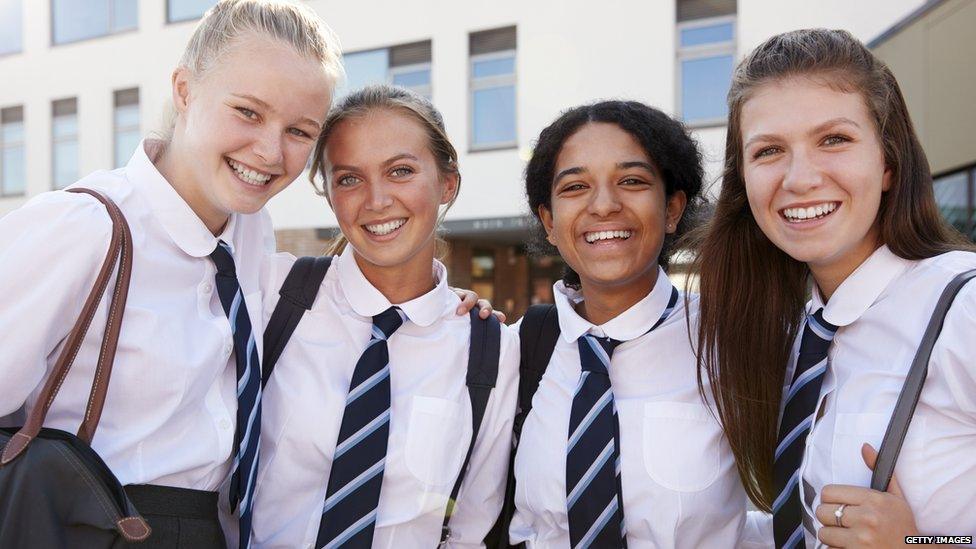Social media has 'little effect on girls' wellbeing'
- Published

Getting enough sleep and seeing friends may have a bigger effect on teenage girls' mental wellbeing than social media use, a report suggests.
The finding comes in the government's new State of the Nation report, looking at young people's happiness levels.
Social media use in itself was found not to be strongly linked to girls' mental health unless youngsters were losing sleep or being bullied online.
Bullying had an effect on wellbeing eight times stronger than social media.
Despite continued debate about the impact of social media on young people's wellbeing, the report suggested once other factors were taken into account, there was not a strong link with psychological health.
'Friendships'
Spending time with friends and getting enough sleep were "consistent protective factors for positive psychological health across adolescence", the report commissioned by the Department for Education said.
Bullying was the factor most strongly associated with girls' mental wellbeing but this became less important for older girls, it added.
The report concluded: "Social media use had one of the smallest effects of all the factors we examined: getting enough sleep and seeing friends were about three times larger.
"Being bullied, including online bullying, had an association with psychological health about eight times larger than social media use.
"This suggested that when accounting for other factors such as the effect of bullying, physical health and sleep, and the frequency of seeing friends, social media use had only a minimal unique association with psychological health."
Overall, the study suggests the majority of young people are relatively happy with their lives, but there has been a slight increase over the past seven years in the proportion who are not.
'Pressures'
Education Secretary Gavin Williamson said: "The pressures young people face today both in and out of school are vastly different to those their parents and grandparents experienced, so we need to listen to what they have to say and act on it."
He added: "It's encouraging that the overwhelming majority of children say they are happy, but we have a responsibility to do better for those that aren't.
"We have given teachers the power to tackle bad behaviour like bullying so that school is a safe place for every child to thrive, but today's report helps shine a light on where to focus these efforts."
In October 2018, then Prime Minister Theresa May committed to publishing a State of the Nation report to integrate the available evidence on the state of children and young people's wellbeing, and to provide an accessible narrative on current evidence to guide discourse and action.
But interest in the national wellbeing of children and young people is not new.
The Office for National Statistics (ONS) has collated measures on the life satisfaction, feelings of worth and general happiness of children and young people since 2012.